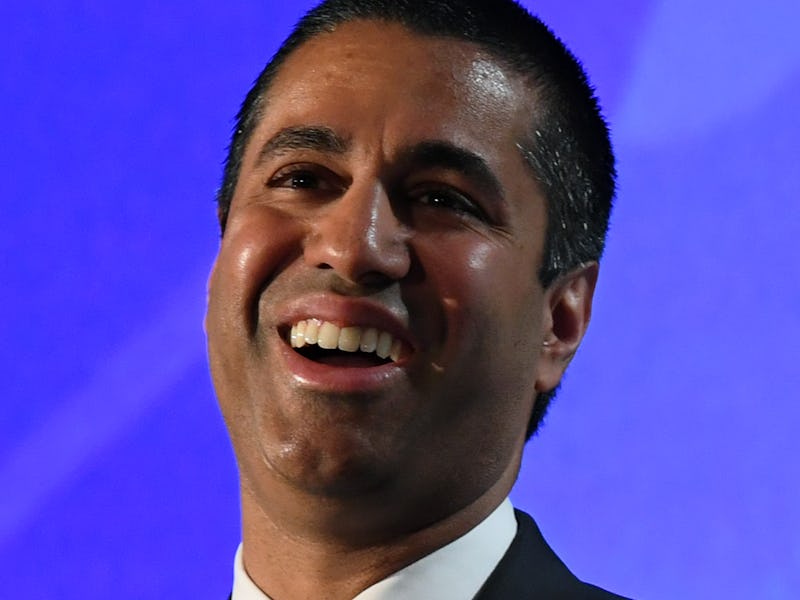The FCC Doesn’t Seem to Care If Anti-Net Neutrality Comments Are Fake
Serious questions remain over the public consultation.

The Federal Communications Commission is unfazed by reports that many of the comments against net neutrality posted on its website may be fake. Reports emerged last week that of the 22 million responses received on the subject, over a million individual comments may have come from spam campaigns that support FCC chairman Ajit Pai’s repeal of the Obama-era consumer protections. That hasn’t stopped the commission from pushing ahead with its vote on the matter on December 14.
Data scientist Jeff Kao shared his own analysis in this Medium post last week, which showed at least 1.3 million anti-neutrality comments came from a single spam campaign disguised as a grassroots movement.
He’s not the first person to sound the alarm — New York Attorney General Eric Schneiderman cited a Gravwell study that showed just 17 percent of submitted comments were actually unique, with that fraction overwhelmingly pro-neutrality. But Kao’s analysis went further, claiming that only around four percent could be considered truly unique, and it’s likely that over 99 percent of those were pro-neutrality.
Kao used this image to illustrate his research into bots posting fake comments on the FCC website in support of killing net neutrality. His caption: "Spot the fake comment. Surprise — they’re all fake."
“I worked on this alone over the span of two weeks during the times I was not in class and was able to reach a conclusion on the organic, non-campaign comments,” Kao tells Inverse. “Many other data scientists have offered similar analyses.”
The FCC is more concerned about the pro-neutrality side. Brian Hart, director of the office of media relations for the FCC, tells Inverse the most suspicious activity came from those in favor of net neutrality. More than 7.5 million comments consisting of the same letter coming from around 45,000 e-mail addresses. Hart also claimed that a single e-mail address in Russia was responsible for over 400,000 pro-neutrality comments.
“We do not purge form letters, such as these, from the record as we err on the side of keeping the public record open and do not have the resources to investigate every comment that is filed,” Hart tells Inverse.
Kao disputes the notion that the FCC does not have the resources, though.
“Most commercial internet platforms will take measures to filter out spam and PR hacking attempts, either on the front-end or the back-end — this is standard practice,” Kao says. “The proceeding has been taking comments for months — with all the resources at the FCC chair’s disposal, it feels to me more a problem of resource allocation.”
Questions linger over the commission’s handling of the consultation, which was by far the largest in its history.
“It feels disingenuous for them to cite a swirled public record, fail to allocate resources to it, and then say that it’s impossible to sort out,” Kao says.
Meanwhile, there are several net neutrality protests planned for the the coming weeks, and here’s exactly what AT&T, Verizon, Charter, and Comcast say about net neutrality.